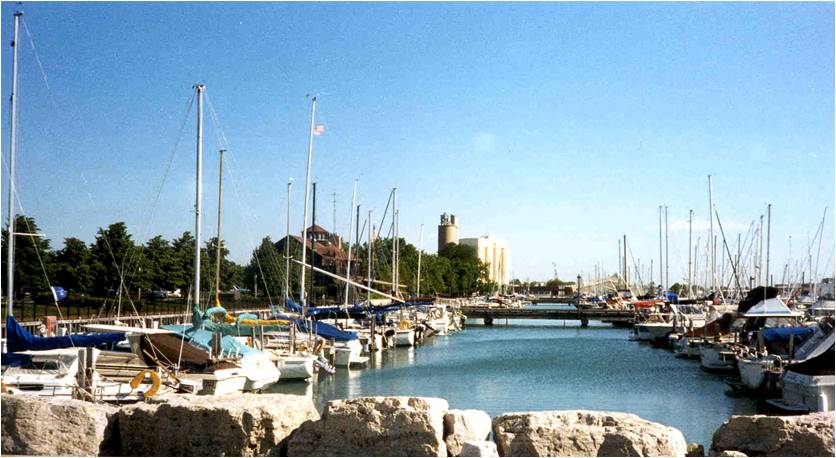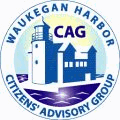Remedial Action Plan Implementation
The Great Lakes Water Quality Agreement (GLWQA) required state and provincial governments to designate geographic Areas of Concern on the Great lakes where conditions have caused or are likely to cause the impairment of beneficial uses. The GLWQA further required that a Remedial Action Plan (RAP) be submitted to the public and the International Joint Commission (IJC) for review and comment at three stages:
-
- When a definition of the problem at the AOC has been completed;
- When remedial and regulatory measures have been selected; and
- When monitoring indicates that identified beneficial uses have been restored.
The Waukegan Harbor Citizens Advisory Group was formed in 1990 to provide recommendations on the development and implementation of the RAP.
Educational Projects
The Waukegan Harbor CAG has sponsored and coordinated numerous educational projects in the Waukegan area. They have coordinated efforts to bring research vessels to Waukegan Harbor, environmental conferences to local schools and provide much needed science equipment to classrooms. Their goal is to educate local school children and adults of all ages about environmental concerns in Waukegan Harbor, Lake Michigan and the Waukegan River watershed. Through hands on learning experiences the CAG effectively cultivates their students into stewards of the local environment.
Waukegan Cool Learning Experience
The Waukegan Harbor CG has worked closely with the First Baptist Church of Waukegan Cool Learning Experience, a STEAM program whose mission is to foster the well-being of the whole child in healthy relationship with family, community and the natural world. Read the program’s 2019 ECO-Times Newsletter.
Lake Baikal – Lake Michigan Partnership
Early in 2001, the Waukegan Harbor CAG was contacted by a Russian scientist, Dr. Elena Kuzevanova, who wanted to learn more about how collaborative process and public-private partnerships are used in the United States to develop environmental policy. She also wanted to explore how educational initiatives can be used to meet environmental objectives and address environmental threats.
The CAG itself is a partnership of educators, environmentalists, industry representatives, sport fishermen, citizens and government officials working together to coordinate an environmental clean-up and the navigational dredging of the Waukegan Harbor Area of Concern.
Dr. Kuzevanova, from the Russian Academy of Sciences Limnological Institute (Siberian branch) is director of the Baikal Ecological Network. The initial contact led to an educational and scientific partnership between the Waukegan Harbor CAG and the Baikal Ecological Network. A formal partnership resolution was created and signed by each organization in the spring of 2001.

